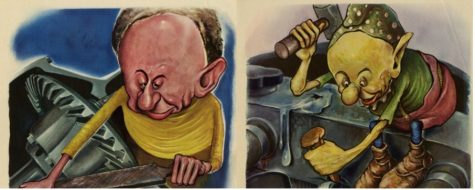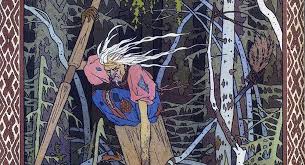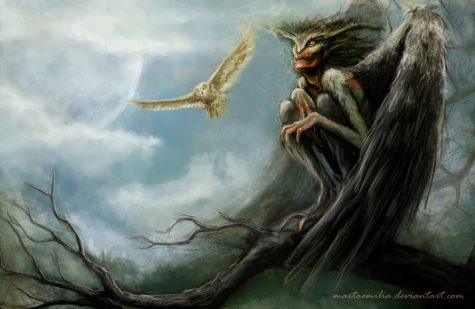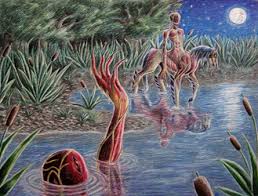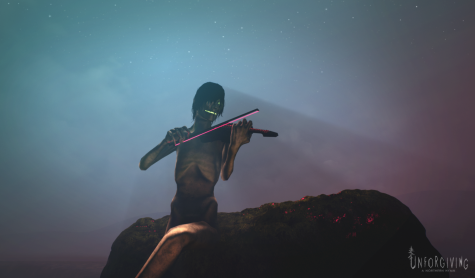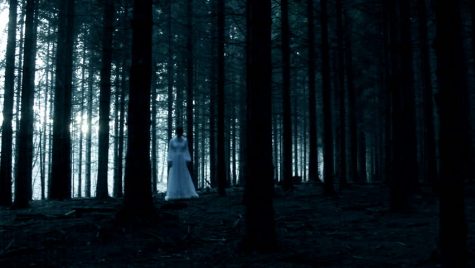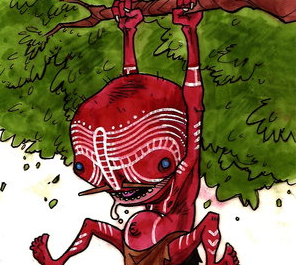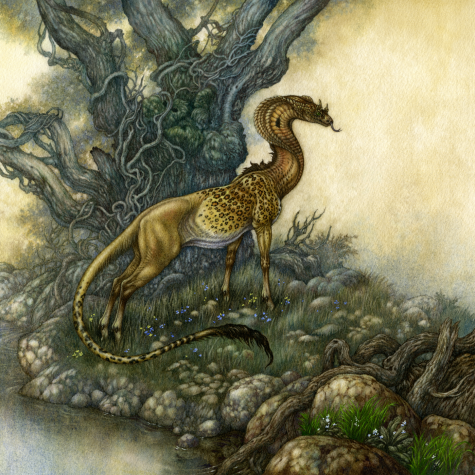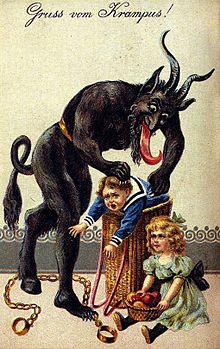Mythical Monsters: the Impundulu
“Every town has its own way of cutting up a chicken.” — African proverb
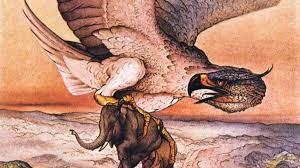
An Impundulu hunts elephants, which it gulps down whole.
Africa’s rich tribal history has cultivated a wide range of fascinating mythology and folk religion, much of which still survives both in its original form in Africa and as Louisiana Voodoo in the States as a result of the African diaspora. One of the basic tenets of traditional African religion is its practitioners’ ability to cross planes and commune with spirits—dead, demonic, or otherwise. Aiding the witch-doctor’s journey to and from the spirit plane is his familiar, the immortal impundulu—a demonic spirit that can be bound to a mortal to do her will.
The name impundulu means ‘lightning-bird,’ so-called because the shapeshifting spirit prefers to appear as a roc, a mountain-sized bird of prey that can devour an elephant in a single gulp. Its massive wingspan blots out the sun, plunging villages into darkness and confusion before it destroys them with lightning summoned from its outstretched talons. It is said to be immortal, as neither bullets, blades, nor poison can harm it—although some say that a spirit flame from the underworld can burn it to death.
It is said to be immortal, as neither bullets, blades, nor poison can harm it—although some say that a spirit flame from the underworld can burn it to death.
Legend asserts that it is passed down through a witch-doctor’s family, its contract inherited by practicing daughters until the impundulu returns to the spirit realm or is willingly sacrificed by its witch as part of a curse-casting ritual.
In addition to its role as a witch-doctor’s helper, transporting them between realms, procuring rare items, and attacking enemies as ordered, the impundulu is also a source of many ingredients in traditional medicine. The fat that it uses as fuel for creating lightning strikes can be made into a potion to cure any disease, and eating its flesh allows you to glimpse the future. An extract from its blood can be painted onto a charm in order to trace thieves akin to a dowsing rod, whereas its eggs, which it lays at the site of a lightning strike, create noxious fumes that sicken livestock, but will impart upon whoever smells them visions of other planes of existence. It is therefore advisable to dig up these eggs as soon as possible, either to dispose of them or to harvest them for the witch-doctor’s use, as leaving them to hatch would be a devastating mistake; any impundulu born outside of the spirit realm is an uncontrollable monster who will stop at nothing to devour all living things. If allowed to mature, an adult born in such a fashion will be capable of swallowing the sun itself; in doing so, it will cast the world into frigid darkness, choking out all life on Earth.
The impundulu is both a useful ally and a risky gamble for witch-doctors and shamans, the true embodiment of playing with fire. While consorting with the spirit is necessary to carry out the rituals and tenets of African folk religion, utmost caution must be exercised to ensure that the creature remains under the shaman’s control or else the havoc it will wreak on the mortal realm has the potential to shatter the very foundations of civilization. No matter the religion, land, or creed, it is universally inadvisable to enter into pacts with spirits; they do not operate under the same social or moral scruples as humans, although they will pretend to do so in order to garner trust in the hopes of being released into the mortal realm. Do not be fooled by their pretty words and temping promises; they have no love for living mortals, and if left unchecked, will do all they can to bring about their ruin.



